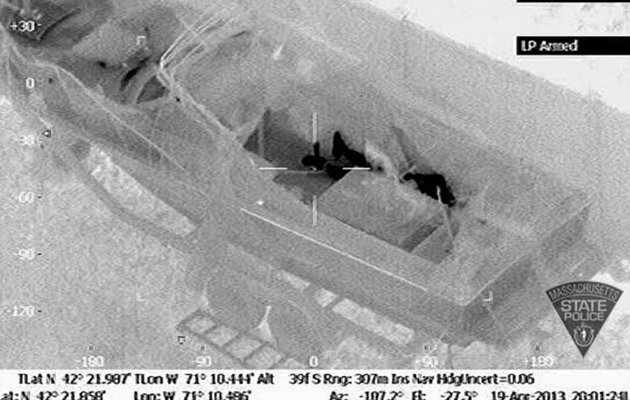Members of Congress swear an oath to defend the Constitution of the United States, but that doesn’t mean they understand it. Over the past week, several Republican lawmakers have expressed outrage over the fact that Dzhokhar Tsarnaev, the surviving suspect in the Boston marathon bombings, was read his rights and reportedly stopped talking to interrogators. These GOPers have accused President Barack Obama of making a grave error by recognizing the constitutional rights of a suspected terrorist.
The Obama administration, however, didn’t have a choice in the matter. Tsarnaev was read his rights by a magistrate judge during an initial appearance that was required by the federal rules of criminal procedure, which are rooted in the constitutional right to due process under the law. The Supreme Court has held that, barring exigent circumstances, a criminal suspect has to be brought before a judicial officer within 48 hours, give or take, at which point the suspect is informed of his rights no matter what.
The interrogation priorities of law enforcement officials don’t count as exigent circumstances, because the point of the rule is to prevent secret detention and to inform suspects of the charges against them. The public safety exception to reading suspects their rights affects whether suspects’ statements can be used in court. It does not affect the requirement that a suspect see a judge within 48 hours. These Republicans don’t seem to understand that distinction.
- Rep. Peter King (R-NY): The former chairman of the House homeland security committee told CNN the fact that Tsarnaev was read his rights was “disgraceful” and said “It is the matter of life and death. I don’t know of any case law which says that magistrate has a right to come in to a hospital room and stop an interrogation.” Rep. King, let me Google that for you.
- Senator Dan Coats (R-Ind.): On CNN’s “State of the Union” Sunday, Coats said that he “was very surprised that they moved as quickly as they did. We had, I think, legal reasons and follow-up investigative reasons to drag this out a little bit longer…I think the AG, attorney general, should have sent a signal basically saying we’re within our legal bounds in doing this for the public safety exemption.” This seems to be a popular misconception. Again, the public safety exception affects the admissibility of statements in court. It does not magically eliminate a suspect’s constitutional right to a speedy trial.
- Rep. Michael McCaul (R-Texas): Rep. McCaul is the current chairman of the House homeland security committee, and a former federal prosecutor, so it’s difficult to believe he doesn’t know the federal rules of criminal procedure. “The only other avenue we had to get this intelligence is through this emergency exception to the Miranda warning,” McCaul told CNN. “But in my judgment, the FBI was cut short in their interrogations when the magistrate judge decided to Mirandize him within 16 hours…I think that cost us dearly in terms of valuable intelligence.” Yes, that’s a former federal attorney mangling not only the nature of the public safety exemption and the requirement to bring the suspect before a judge, but also constitutional separation of powers. The FBI does not get to tell judges when they should see suspects.
- Rep. Mike Rogers (R-Mich): Probably the only thing more embarrassing than being a federal prosecutor who doesn’t understand the federal rules of criminal procedure is being a former FBI agent who doesn’t understand them. Enter Rep. Rogers, chair of the House intelligence committee, who in an interview with MSNBC last week slammed the judiciary for “interceding” in an interrogation, referring to Tsarnaev being read his rights as “confusing” and a “horrible, God-awful policy” that is “dangerous to the greater community.” It’s not that confusing: The public safety exemption does not allow interrogators to indefinitely detain and interrogate suspects in violation of their constitutional rights.
Senator Lindsey Graham (R-S.C.) has gone a different route and argued that Tsarnaev should have been held in military detention as an “enemy combatant.” But federal law specifically defines those who can be detained militarily as individuals who are play an operation role in foreign terrorist groups like Al Qaeda, and so far the evidence indicates the Tsarnaevs acted alone. It’s also possible that holding an American citizen like Tsarnaev in military detention after apprehending him on US soil would be unconstitutional even if some tie to foreign terrorist organizations were discovered.
Dzhokhar Tsarnaev is accused of doing horrible things. But he is an American citizen who is entitled to all the rights due him under the Constitution, none of which would mean anything if the government could pick and choose when they apply. Then they wouldn’t be rights at all.















